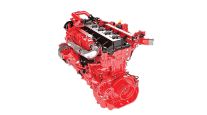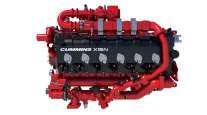Editorial: Much Ado About a Little Something
When was the last time that something that represents less than a fraction of 1% of the nation’s truck fleet had such a major effect on the freight-hauling industry? Maybe never?
Once again last week, natural gas as a trucking fuel was a major source of attention, as Daimler Trucks North America announced a few new models powered by the alternative fuel.
In recent months, there has been a constant drumbeat as all of the nation’s truck makers (and car-makers for that matter) have announced new natural-gas models. Other suppliers have unveiled new fueling stations or equipment related to the use of natural gas.
As DTNA officials told reporters at a press event, natural gas is “the most talked-about topic” in trucking.
And, as those same officials said in the proverbial next breath, natural-gas trucks account for less than 1% of the vehicles being sold today, when sales are at their highest level ever.
All this fuss underlines how critical fuel prices are to the success of freight-hauling companies, and the crucial role alternative fuels could play.
As diesel prices seem to be inching their way back to $4 a gallon, more fleets are open to powering their vehicles with other fuels, and natural gas heads that list of alternatives.
All this interest in natural gas has come, even though there is only a fledgling natural-gas fueling infrastructure in the nation, which has severely restricted where such trucks can safely operate.
And this interest has come without appropriate power plants to put into most trucks: The choices have been too-small engines from Cummins-
Westport and a complicated heavy-haul engine from Westport Innovations that uses diesel and natural gas.
Truck makers are fighting to get their hands on Cummins-Westport’s new 12-liter natural-gas engine, a variant on the well-known ISX diesel engine produced by Cummins Inc.
All this fuss comes even as virtually every truck maker and analyst says that diesel will be the dominant fuel for the foreseeable future.
This incredible amount of interest in natural gas shows just how frustrated fleets have felt in their inability to have much effect on how much it costs to fuel their vehicles. The hope of a viable alternative is no doubt a major reason for the out-of-scale interest in anything connected to it.
Ah, these interesting times in which we live.




